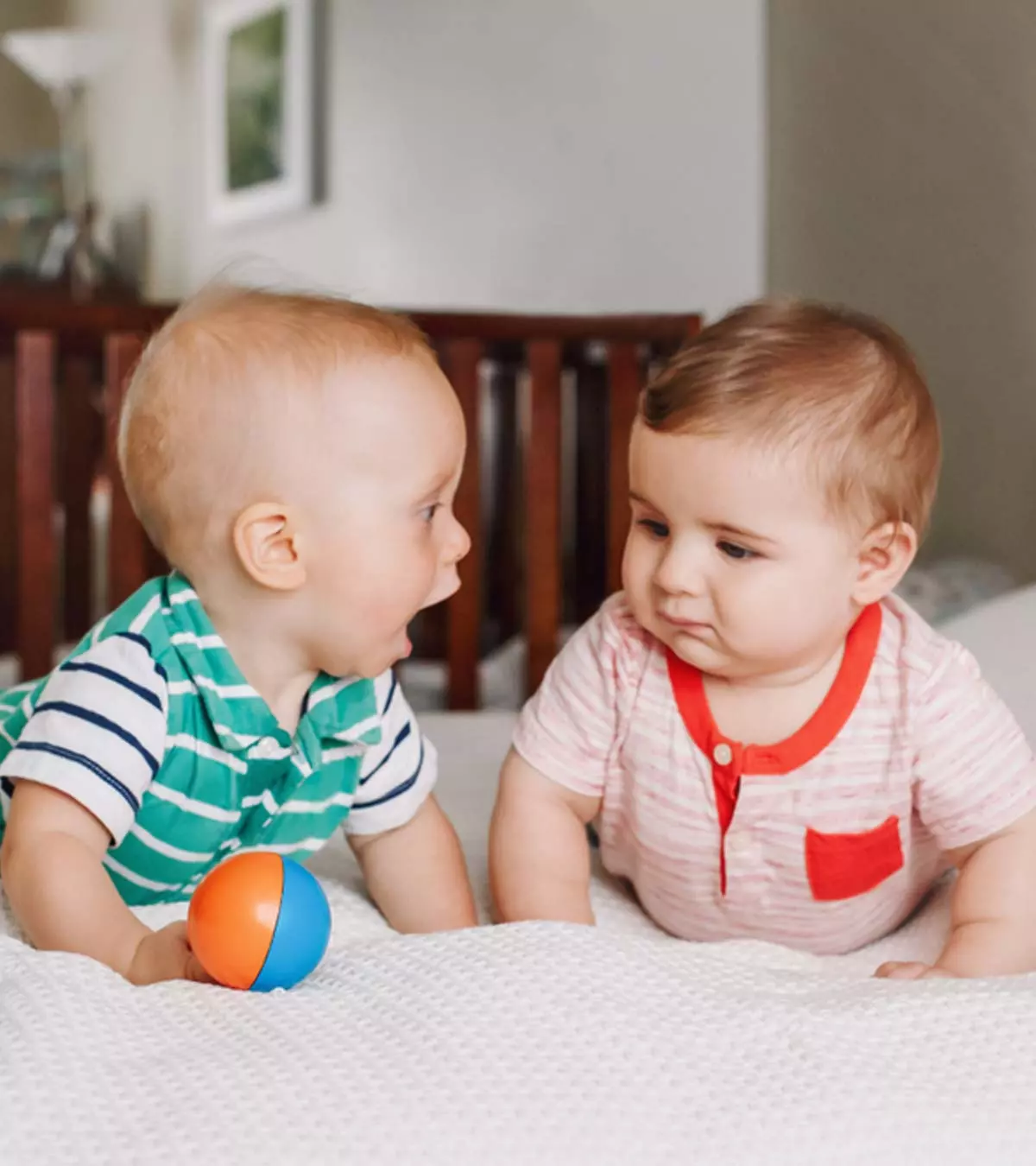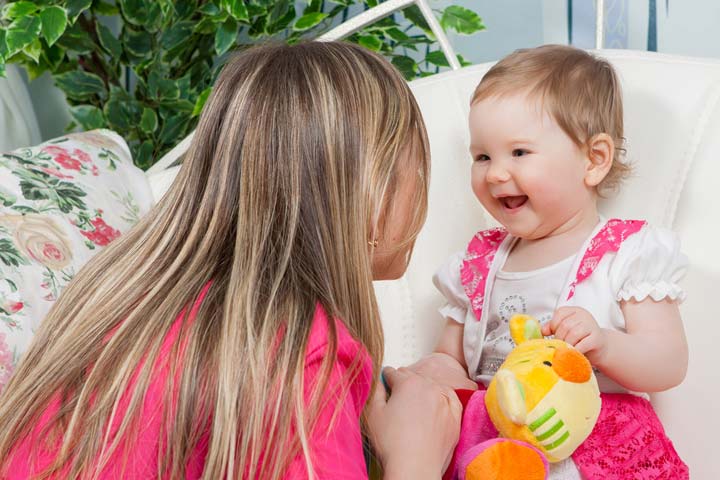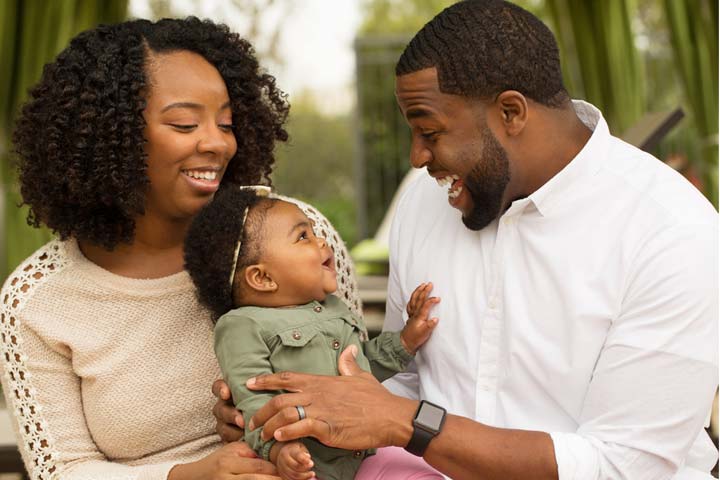
Shutterstock
One of the greatest joys for parents is to hear their babies speak. Every parent waits eagerly to listen to their babies’ first word. The first word could be anything. From “mamma” and “pappa” to even random sounds that might not be a word, parents much await their babies’ first words. Remember in F.R.I.E.N.D.S when Ross and Rachel’s baby, Emma, says “gleeba” as her first word? They were not sure if it was a word but were overjoyed because it sounded like one.
But before all babies start saying words, there is a phase where they delight you with babbling and cooing. You would probably agree that “baby talk” is quite heartwarming. Even though babies have not learned to express themselves, with baby talk and some facial expressions, it seems like they are communicating with you. They also start to respond to specific actions, words, and cues, and those are the moments you live for. But in a recent study, researchers found that, while babies slowly begin to understand and recognize your voice, they prefer to communicate with other babies (1).
Before they start to form words or full sounds, babies can recognize vowel sounds during the babbling stage. However, when they hear these sounds from their peers, they tend to dwell on them more. The study found that babies pay more attention to high pitched sounds, like the ones used by mothers when they talk to their babies. However, they have a distinct preference for sounds that resemble their own sound (2).
How Much Talking Is Too Much Talking?
This new information does not mean that parents should not engage in baby talk with their infants. It’s good to talk to your infants as much as possible. They pick up on language skills and speech just by watching you and listening to you talk. You don’t have to allot a specific time to talk to your baby and communicate with them throughout the day.
However, like most of us, babies like some quiet time too. If you see your baby grumpy, tired or unresponsive, choose another time to talk to them. It also depends on your babies’ temperament. Some infants are naturally more outgoing, and others are quieter. So, depending on their nature, they choose to communicate with you, and you don’t have to be worried (3).
When Should You Start?
Every child learns to speak at their own pace, but by the end of three months, they might smile when you appear, cry differently for different needs, smile or quieten when spoken to, and even recognize your voice (4). So, start talking to your baby as early as possible even if the conversation starts to feel one-sided in the beginning. Another study also suggested that babies quickly grasp languages when they are exposed to more baby talk (5).
So all your baby mammas and dadas, don’t stop talking to your infant. Start young and keep the baby talk at the highest level. Some parents also begin to speak to each other the same way they would to the baby when they are amidst their infant. This helps them watch, observe, and listen to you, which develops their language skills.
Tips To Talk To Babies
If you are or have ever been a pet parent, you are well versed in communication with your furry baby. Talking to an infant is more or less the same. Some parents might struggle with how to communicate with their baby, so here are a few tips and tricks you could try:
- Be interesting and be present. Talk about things that they would like to hear about. You could talk about their toy, a story about a train, their grandpa, etc.
- Use keywords instead of full sentences. Suppose if it is bath time, you could say, “Splash time!”
- Use natural pauses. It teaches your infant the “give and take” part of a conversation.
- Talk about an experience that they had. You could say, “Do you hear that sound? That’s the choo-choo train!”
- Use a lot of expressions to make your conversation interesting. It’s about how you converse rather than what you speak about.
It’s time for you to get going and master your baby talk. What are you waiting for? Share this with your baby mommies and daddies to help them out!

















